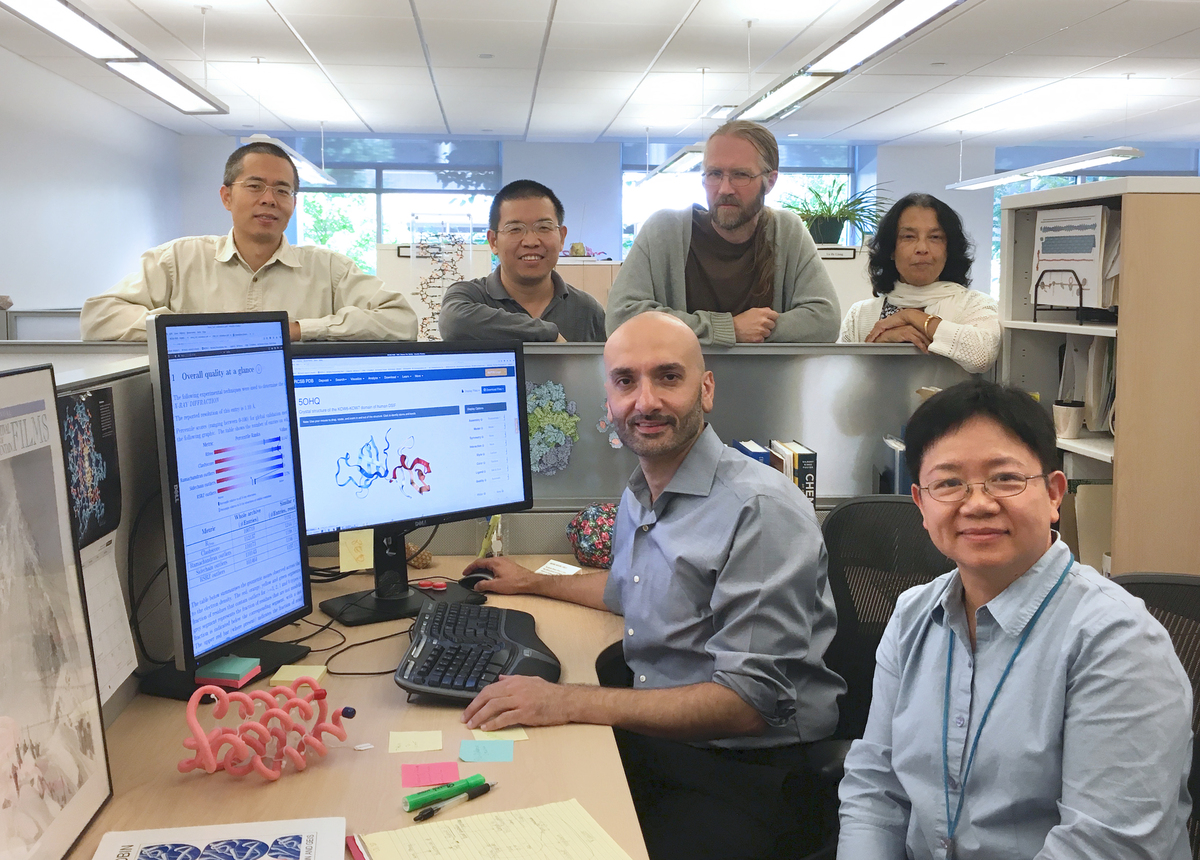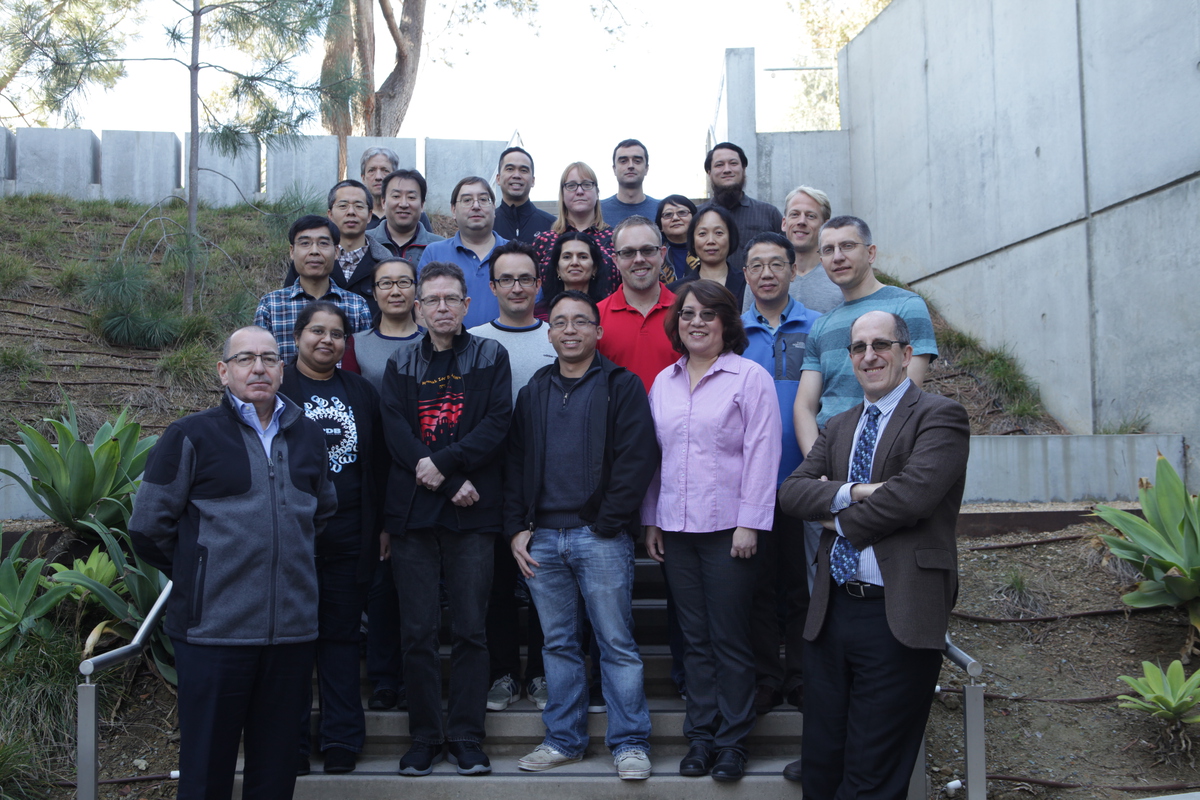News
The Rewards of Working as a Data Wrangler
10/17
Data archives are critical to research and education. They provide safe and secure storage of valuable scientific data, and ensure that information is freely available to the world.
Data curation is critical for these data resources. In the case of PDB, data are carefully reviewed and annotated by wwPDB curators before public release. Expert curation of data coming into PDB is critical for ensuring findability, accessibility, interoperability, and reusability (FAIR). Biocurators enforce data standardization, help to maximize data quality, provide value-added annotation, and maintain uniformity in data representation.
To better understand the what goes into this important work, Science Careers spoke with RCSB PDB and other data resources to find out.
The rewards of working as a data wrangler by Maggie Kuo
Science Careers doi: 10.1126/science.caredit.aaq0481
 Biocurators Chenghua Shao, Yuhe Liang, Brian Hudson, Sutapa Ghosh (standing), Luigi Di Costanzo, and Lihua Tan (seated). Combined, these biocurators have processed more than 30,000 PDB structures!
Biocurators Chenghua Shao, Yuhe Liang, Brian Hudson, Sutapa Ghosh (standing), Luigi Di Costanzo, and Lihua Tan (seated). Combined, these biocurators have processed more than 30,000 PDB structures!Interested in wrangling PDB data? Join RCSB PDB’s multidisciplinary development team at UC San Diego as a Scientific Software Developer or Postdoctoral Fellow and engage in RCSB PDB's leading edge research, development, and outreach activities.













